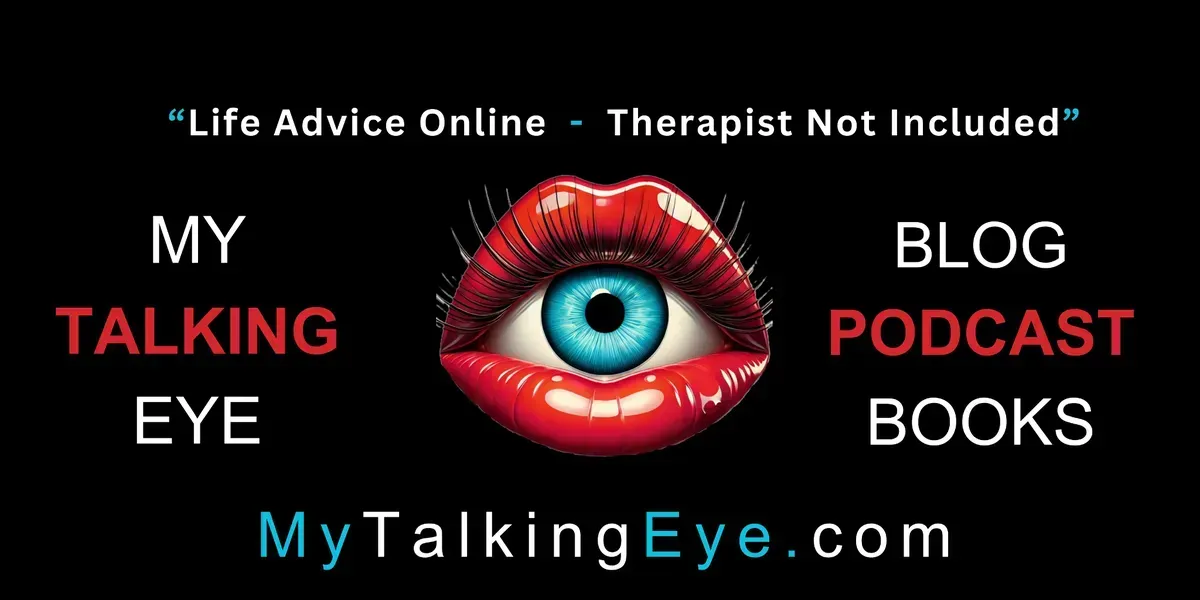

Grief: Daily Life After Loss of a Loved One
The World Keeps Turning: When Routine Returns But You Don't
Second entry in the "Depths of Grief" blog series
There's a particular cruelty to the calendar. Two weeks, three weeks, a month passes after your loss, and suddenly the world expects you to rejoin it—as if the person-shaped hole in your life has been patched and sealed, ready for normal use again.
The Expectation of Return
"Are you coming back to work next week?" my boss asked, her voice gentle but expectant.
The question seemed absurd. Come back? To meetings and deadlines and office small talk? The mechanics of returning felt as complex and impossible as piloting a spacecraft. I didn't know how to explain that I was still learning how to exist in a world that no longer contained the person I loved.
But I said yes anyway. Because that's what you do. That's what everyone does, eventually.
Two Versions of Yourself
You learn to move through the world wearing a mask of functionality. There's the you that people see—the one who showers and dresses appropriately, who nods at the right moments in conversations, who remembers to pay bills and buy groceries—and then there's the real you, the one who's still shattered inside.
Sometimes the gap between these two versions of yourself feels so vast that you wonder if you're losing your mind. You sit in meetings discussing quarterly projections while inside your head you're screaming. You smile at the barista while ordering coffee, and they have no idea that you cried for an hour before leaving the house.
"You're doing so well," people say, and you wonder what they would think if they could see the chaos beneath your carefully constructed surface.
The Secondary Losses
It's during this phase that the secondary losses begin to reveal themselves. These are the quiet, unexpected absences that continue to ambush you long after the initial shock has worn off:
The inside jokes that no one else understands
The shared references that now have nowhere to land
The person who knew exactly how you take your coffee without asking
The way they pronounced certain words
The sound of their key in the door
The warmth of their particular presence in a room
Each of these small losses arrives with its own fresh grief, and yet they're so specific, so personal, that they're difficult to articulate to others. How do you explain that you're devastated because you found their handwriting on an old grocery list? Or that the sight of their favorite cereal in the store made you have to abandon your shopping cart and leave?
When the Casseroles Stop Coming
There's a noticeable shift in how others treat you during this phase. The initial surge of support—the flowers, the casseroles, the check-in texts—begins to recede. Not because people don't care, but because life continues its forward momentum, pulling them along with it.
For them, your loss is becoming part of the past. For you, it remains stubbornly in the present.
You begin to notice a hesitation when you mention your person's name. Others don't know if it's "okay" to talk about them, if doing so will "remind" you of your grief—as if you've had even a moment's respite from remembering.
The Loneliness of the Long-Term Griever
This is perhaps the loneliest phase of grief. The initial crisis has passed, but the pain hasn't. You're expected to function, but you're still broken. The intensity hasn't diminished; it's just become less visible to others.
I found myself longing for those first raw days when my grief was acknowledged, when it was acceptable to fall apart. Now, falling apart had to be scheduled, contained to private moments between obligations.
The Double Life
You develop strange new habits. I found myself sitting in my car in parking lots, taking deep breaths before entering buildings. Bathroom stalls become sanctuaries for collecting yourself. You perfect the art of the emergency exit—knowing exactly how to slip away from social situations when the mask starts to slip.
And there are the unexpected triggers:
Songs on the radio
Certain street corners
The smell of a particular cologne
Holidays and anniversaries
Dreams where they're still alive, making the waking up cruel all over again
Each one can instantly transport you back to that first day of loss, making your carefully constructed composure crumble without warning.
Finding Your Grief Companions
It was during this phase that I discovered who my true grief companions would be. These aren't necessarily your closest friends or family. They're the people who don't need you to be "better" or "moved on." They're comfortable sitting with you in your pain without trying to fix it.
They're the ones who:
Mention your person's name without awkwardness
Don't take it personally when you cancel plans
Allow conversations to veer into difficult emotional territory
Understand that grief isn't a linear process with a defined endpoint
If you're lucky enough to find these people, hold onto them. They are rare and precious.
The New Normal That Isn't Normal At All
"You'll find a new normal," people say, and though the phrase makes me wince, I've come to understand what they mean. It's not that things become normal again—it's that you learn to navigate a world that will always feel slightly wrong, slightly off-kilter.
You develop new routines that accommodate the absence. You learn which paths to take and which to avoid. You discover new ways to honor the connection that death couldn't sever.
This isn't healing, exactly. It's adaptation. Like learning to walk with a permanent limp—you'll get where you're going, but the journey looks different now.
Permission to Grieve Your Way
If you're in this phase now, I want you to know something: there is no timeline, no right way to do this. Despite what the world may expect, you don't owe anyone a speedy recovery.
Some days will be harder than others, and that's not failure. It's not "backsliding" or "getting stuck." It's simply the nature of loving deeply and losing profoundly.
Give yourself permission to:
Decline invitations when you need to
Talk about your person, even if it makes others uncomfortable
Acknowledge special dates and anniversaries in whatever way feels right
Be honest when someone asks how you're doing (if you trust them with the truth)
Change your mind about what you need
The world will keep turning whether you're ready or not. But how you move through it, how you honor your grief while continuing to live—that remains entirely yours to determine.
In the next entry of "Depths of Grief," I'll explore the complex emotions that emerge when moments of joy begin to return—and the guilt that often accompanies them.
If you're struggling with grief that feels unmanageable, remember that professional support is available. The Center for Complicated Grief (complicatedgrief.columbia.edu) offers resources specifically for those whose grief persists with intense longing and preoccupation with the deceased.

Grief: Daily Life After Loss of a Loved One
The World Keeps Turning: When Routine Returns But You Don't
Second entry in the "Depths of Grief" blog series
There's a particular cruelty to the calendar. Two weeks, three weeks, a month passes after your loss, and suddenly the world expects you to rejoin it—as if the person-shaped hole in your life has been patched and sealed, ready for normal use again.
The Expectation of Return
"Are you coming back to work next week?" my boss asked, her voice gentle but expectant.
The question seemed absurd. Come back? To meetings and deadlines and office small talk? The mechanics of returning felt as complex and impossible as piloting a spacecraft. I didn't know how to explain that I was still learning how to exist in a world that no longer contained the person I loved.
But I said yes anyway. Because that's what you do. That's what everyone does, eventually.
Two Versions of Yourself
You learn to move through the world wearing a mask of functionality. There's the you that people see—the one who showers and dresses appropriately, who nods at the right moments in conversations, who remembers to pay bills and buy groceries—and then there's the real you, the one who's still shattered inside.
Sometimes the gap between these two versions of yourself feels so vast that you wonder if you're losing your mind. You sit in meetings discussing quarterly projections while inside your head you're screaming. You smile at the barista while ordering coffee, and they have no idea that you cried for an hour before leaving the house.
"You're doing so well," people say, and you wonder what they would think if they could see the chaos beneath your carefully constructed surface.
The Secondary Losses
It's during this phase that the secondary losses begin to reveal themselves. These are the quiet, unexpected absences that continue to ambush you long after the initial shock has worn off:
The inside jokes that no one else understands
The shared references that now have nowhere to land
The person who knew exactly how you take your coffee without asking
The way they pronounced certain words
The sound of their key in the door
The warmth of their particular presence in a room
Each of these small losses arrives with its own fresh grief, and yet they're so specific, so personal, that they're difficult to articulate to others. How do you explain that you're devastated because you found their handwriting on an old grocery list? Or that the sight of their favorite cereal in the store made you have to abandon your shopping cart and leave?
When the Casseroles Stop Coming
There's a noticeable shift in how others treat you during this phase. The initial surge of support—the flowers, the casseroles, the check-in texts—begins to recede. Not because people don't care, but because life continues its forward momentum, pulling them along with it.
For them, your loss is becoming part of the past. For you, it remains stubbornly in the present.
You begin to notice a hesitation when you mention your person's name. Others don't know if it's "okay" to talk about them, if doing so will "remind" you of your grief—as if you've had even a moment's respite from remembering.
The Loneliness of the Long-Term Griever
This is perhaps the loneliest phase of grief. The initial crisis has passed, but the pain hasn't. You're expected to function, but you're still broken. The intensity hasn't diminished; it's just become less visible to others.
I found myself longing for those first raw days when my grief was acknowledged, when it was acceptable to fall apart. Now, falling apart had to be scheduled, contained to private moments between obligations.
The Double Life
You develop strange new habits. I found myself sitting in my car in parking lots, taking deep breaths before entering buildings. Bathroom stalls become sanctuaries for collecting yourself. You perfect the art of the emergency exit—knowing exactly how to slip away from social situations when the mask starts to slip.
And there are the unexpected triggers:
Songs on the radio
Certain street corners
The smell of a particular cologne
Holidays and anniversaries
Dreams where they're still alive, making the waking up cruel all over again
Each one can instantly transport you back to that first day of loss, making your carefully constructed composure crumble without warning.
Finding Your Grief Companions
It was during this phase that I discovered who my true grief companions would be. These aren't necessarily your closest friends or family. They're the people who don't need you to be "better" or "moved on." They're comfortable sitting with you in your pain without trying to fix it.
They're the ones who:
Mention your person's name without awkwardness
Don't take it personally when you cancel plans
Allow conversations to veer into difficult emotional territory
Understand that grief isn't a linear process with a defined endpoint
If you're lucky enough to find these people, hold onto them. They are rare and precious.
The New Normal That Isn't Normal At All
"You'll find a new normal," people say, and though the phrase makes me wince, I've come to understand what they mean. It's not that things become normal again—it's that you learn to navigate a world that will always feel slightly wrong, slightly off-kilter.
You develop new routines that accommodate the absence. You learn which paths to take and which to avoid. You discover new ways to honor the connection that death couldn't sever.
This isn't healing, exactly. It's adaptation. Like learning to walk with a permanent limp—you'll get where you're going, but the journey looks different now.
Permission to Grieve Your Way
If you're in this phase now, I want you to know something: there is no timeline, no right way to do this. Despite what the world may expect, you don't owe anyone a speedy recovery.
Some days will be harder than others, and that's not failure. It's not "backsliding" or "getting stuck." It's simply the nature of loving deeply and losing profoundly.
Give yourself permission to:
Decline invitations when you need to
Talk about your person, even if it makes others uncomfortable
Acknowledge special dates and anniversaries in whatever way feels right
Be honest when someone asks how you're doing (if you trust them with the truth)
Change your mind about what you need
The world will keep turning whether you're ready or not. But how you move through it, how you honor your grief while continuing to live—that remains entirely yours to determine.
In the next entry of "Depths of Grief," I'll explore the complex emotions that emerge when moments of joy begin to return—and the guilt that often accompanies them.
If you're struggling with grief that feels unmanageable, remember that professional support is available. The Center for Complicated Grief (complicatedgrief.columbia.edu) offers resources specifically for those whose grief persists with intense longing and preoccupation with the deceased.
